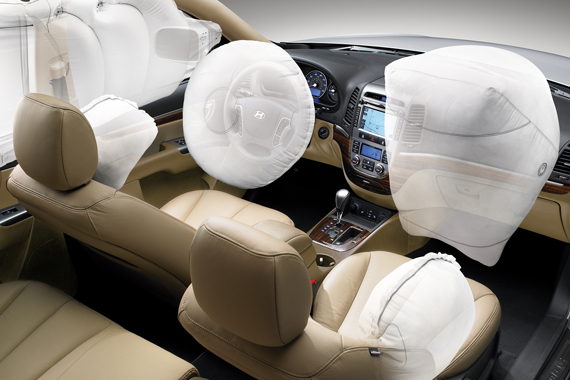Now Reading: Honda confirms 11th U.S. death connected to faulty Takata air bag inflator
-
01
Honda confirms 11th U.S. death connected to faulty Takata air bag inflator
Honda confirms 11th U.S. death connected to faulty Takata air bag inflator

Honda Motor stated on Monday it had confirmed 11th death in the US involving one of its vehicles connected to a malfunctioning Takata air bag inflator.
The automaker stated the incident took place in Florida in June 2016 when an individual was working on repair works on a 2001 Honda Accord and the air bag ruptured. About 17 deaths and 180 injuries worldwide are now associated with the defect that prompted the biggest ever car safety recall and led Takata to file bankruptcy protection last month.
Takata inflators can blow up with excessive force, releasing metal shrapnel inside vehicles.
The Honda Accord was amongst a group of over 300,000 unrepaired recalled Honda lorries geared up with inflators with a significant danger of bursting. Honda stated the car’s signed up owners had gotten a minimum of 12 recall notices however never ever got recommended repairs.
The person working on the automobile in Florida died one day after sustaining injuries when the air bag deployed.
In 2016, the United States National Highway Traffic Safety Administration (NHTSA) prompted owners to stop driving the risky vehicles till they were repaired. NHTSA stated 2001-2003 model Honda and Acura vehicles have as huge as a 50 percent chance of a dangerous air bag inflator rupture in a crash.
Of the deaths connected to Takata’s inflators, 16 took place in Honda cars since May 2009, about five of them in Malaysia utilizing a various type Takata inflator, while one death took place in a Ford Motor vehicle in South Carolina in December 2015.
Other than that, a federal judge in Detroit on Monday said he planned to name law professor Eric D. Green to manage $975 million in compensation funds for Takata air bag victims and car manufacturers.
Scott Caudill, TK Holdings’s chief operating officer of Takata’s U.S. unit, stated in a court affidavit earlier in its bankruptcy filing that the company is facing overwhelming claims relating to the recalls and owes billions of dollars to automakers.
He revealed that Takata has recalled, or anticipates to recall, by 2019 about 125 million vehicles globally, including over 60 million in the United States.
Stay Informed With the Latest & Most Important News
Previous Post
Next Post
-
 01Polestar Boss Says It’s Time To Outrun BMW M And Mercedes-AMG
01Polestar Boss Says It’s Time To Outrun BMW M And Mercedes-AMG -
 02Spy Shots: 2027 Mitsubishi Pajero Spotted in Testing Ahead of Possible U.S. Return
02Spy Shots: 2027 Mitsubishi Pajero Spotted in Testing Ahead of Possible U.S. Return -
 032026 Toyota Hilux EV: A Powerful Truck with Silent Torque
032026 Toyota Hilux EV: A Powerful Truck with Silent Torque -
 042026 Corvette ZR1 Production Surges Past Expectations as Output Clears 1,000 Units
042026 Corvette ZR1 Production Surges Past Expectations as Output Clears 1,000 Units -
![2027 Mercedes-Benz S-Class Debuts with V8 Engine [Photo Gallery]](https://speedlux.com/wp-content/uploads/2026/01/2027-Mercedes-Benz-S-Class-33-155x125.jpg) 052027 Mercedes-Benz S-Class Debuts with V8 Engine [Photo Gallery]
052027 Mercedes-Benz S-Class Debuts with V8 Engine [Photo Gallery] -
 06Spy Photos: VW ID. Polo GTI Goes Electric with 223 HP and 280 Miles of Range
06Spy Photos: VW ID. Polo GTI Goes Electric with 223 HP and 280 Miles of Range -
 07Hyundai Palisade’s Breakout Year Shows How Quickly the Market Can Turn
07Hyundai Palisade’s Breakout Year Shows How Quickly the Market Can Turn



![2027 Mercedes-Benz S-Class Debuts with V8 Engine [Photo Gallery]](https://speedlux.com/wp-content/uploads/2026/01/2027-Mercedes-Benz-S-Class-33-700x394.jpg)











































